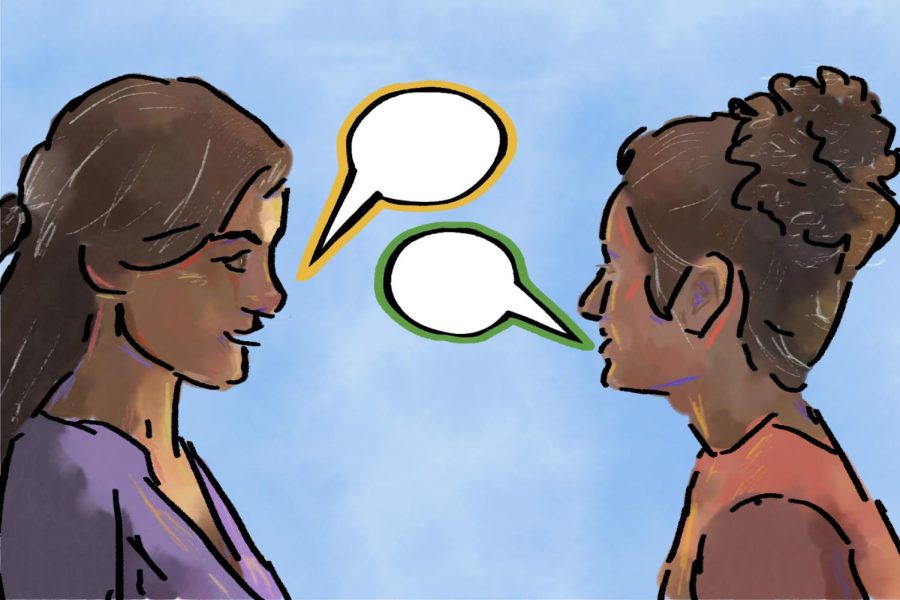Let’s talk about sex, baby
March 28, 2023
The topic of sex can be awkward and uncomfortable for everyone, but the birds and the bees talk is a rite of passage – albeit a very limited one.
Despite a cultural shift to increase openness, sex seems to only be discussed behind closed doors. Although conversations about sex have become more normalized, this openness is superficial – leaving young people, including college students, feeling as though sex is taboo.
To normalize the stigma and misconceptions around sex, the University should expand its sexual education resources to include reliable information about sexual autonomy and answer pertinent questions.
Texas is currently an abstinence-only education state, meaning lower-level public schools are not required to teach sexual education. Rather, schools solely emphasize the importance of choosing chastity.
Leonardo Garcia, a liberal arts honors and sociology, race, indigeneity and migration sophomore, said that Texas’ abstinence-only curriculum left them without proper knowledge of their sexual health. Garcia said they relied on campus life and surrounding people to learn more about the topic.
“The University should expand on safe, intimate procedures that can be done and can be instilled into knowledge to the student population, because sexual health is constantly evolving, at the state, national and international level,” Garcia said. “So (expanding the University’s programs) just makes us ready for anything and everything that can happen to ensure the health of students that go and live their lives outside of UT.”
While Texas public schools do provide several opportunities for students to receive sexual education, parents uncomfortable with their child learning about this topic can opt out altogether. Since sexual education isn’t mandatory in Texas, many students experience a blatant disparity in knowledge about sexual health once entering university. A lack of discourse around sex also decreases students’ overall curiosity about sexual health.
Brittany O’Malley, Assistant Director for Prevention and Healthy Horns, explained that students enter UT with different types of exposure to sexual education. She believes it is important to help bridge that gap by giving students a comfortable college learning environment.
“I think empowering students with information so that they can make mindful decisions over their own body and in their relationships is a big part of what (Healthy Horns does),” O’Malley said. “I also think it’s not just an individual decision that they make, and so a lot of the work we do outside of just sexual health is really connected to it in terms of understanding healthy relationships and communication and understanding, navigating, building that sense of belonging and building connections in a healthy way.”
Sex is more than just reproducing. It also involves learning about topics like consent, how it can be enjoyable and how to build healthy and understanding relationships from it.
Although the University has great website resources and hosts collaborative workshops about healthy sexuality, students deserve more information. Without ample resources, students must consult the internet to ask questions they should’ve received answers to in high school and middle school.
Taking inspiration from other universities, UT could create an extensive sexual education resource guide like Trinity University or add an “Ask the Sexperts” Q&A website option like Stephen F. Austin State University.
The freedom of the university experience is the perfect time to explore your sexuality and preferences. Students shouldn’t feel embarrassed to learn more about themselves. UT, let’s talk about sex.
Ramos is a journalism sophomore from Laredo, Texas.





